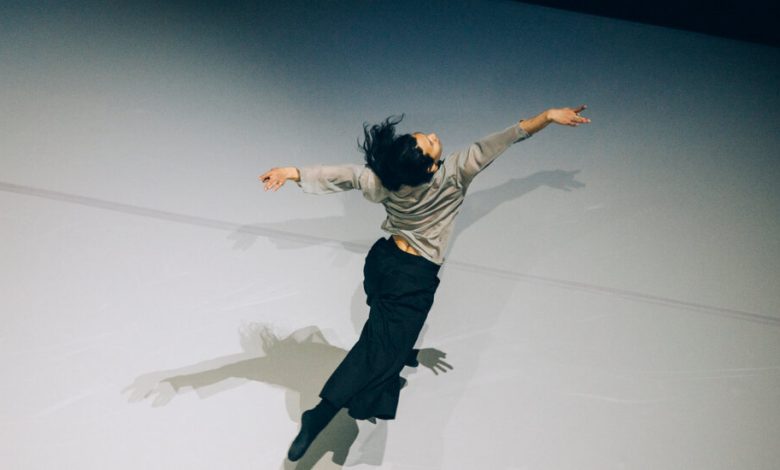Review: Millepied and Muhly, Partners in Space and Sound

The choreographer Benjamin Millepied is a protean figure. The founder of the L.A. Dance Project, he has been a principal dancer with New York City Ballet, the director of the Paris Opera Ballet, a filmmaker and a perennially well-connected catalyst for adventurous collaborations with figures from the worlds of fashion, movies, music and dance.
Recently relocated to Paris from Los Angeles, Millepied has not — heaven forfend — been idle. He has, with Solenne du Haÿs Mascré, started the Paris Dance Project, not a company, but an umbrella for choreographic and educational initiatives; he continues to run the L.A. Dance Project; and he hasn’t stopped choreographing.
His new work, “Me. You. We. They” — in which he made a surprise appearance as a dancer — is the seventh that he has created with the composer Nico Muhly, and it was the concluding piece on the program “Benjamin Millepied & Nico Muhly,” performed by L.A. Dance Project, which opened on Friday at the Philharmonie de Paris.
Millepied’s first theatrical offering since returning to France, the program is a clever choice for the Philharmonie. The concert hall, designed by Jean Nouvel, opened in 2015 in a traditionally working-class neighborhood amid heated debate about its location — Would classical music attendees go to the outskirts of Paris? Would a new audience come? — as well as cost overruns and Nouvel’s very public unhappiness with the finished building.
But the Philharmonie is generally considered a success, partly because it has tried to appeal to a diverse public with offerings beyond the classical music sphere. The Muhly-Millepied program fits perfectly: Muhly writes serious contemporary music, accessible and youthful, and it doesn’t hurt that Millepied is a big name in his native France. (The large hall, with 2,400 seats, was almost sold out for the four-show run, which ended on Sunday.)
The hall’s acoustics are fabulous for the Muhly scores, stirringly played by the ensemble Le Balcon and sensitively conducted by Maxime Pascal. The surprise is how well the space works for dance despite no proscenium to hang lights from, or wings for the dancers to disappear into.